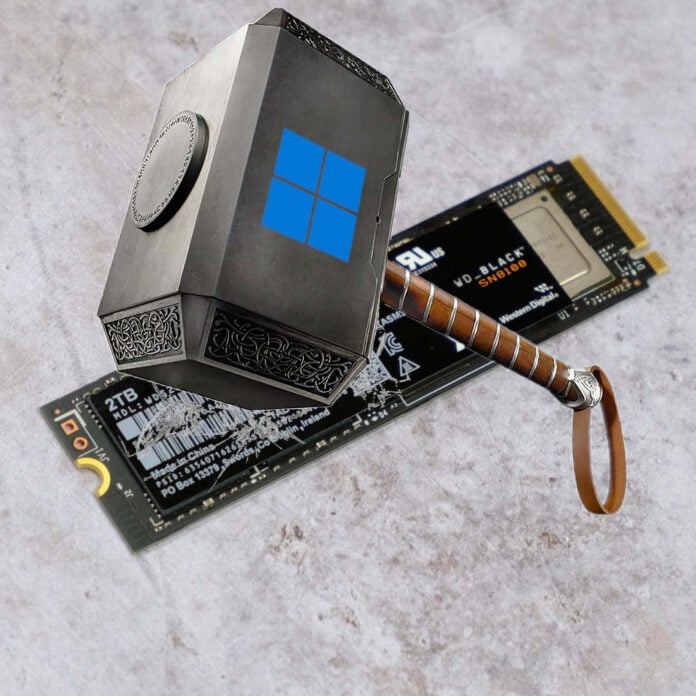Update (01/09/25): Both Microsoft and Phison have issued statements regarding recent allegations that Windows 11 updates ‘KB5063878’ and ‘KB5062660’ were responsible for corrupting solid state storage.
In a statement to Neowin, Phison states it has conducted “over 4,500 cumulative testing hours to the drives reported as potentially impacted”. In that time, the company has been unable to recreate the issue, but will continue to monitor the situation.
Meanwhile, in an internal service alert seen by BleepingComputer, Microsoft “has found no connection between the August 2025 Windows security update and types of hard drive failures reported on social media.” However, it is continuing to keep track of further reports with room for additional investigation.
The original article now follows below.
Original article (19/08/25): Microsoft’s latest KB5063878 security update for Windows 11 24H2 is reportedly causing unexpected and rapid SSD failures. Several brands appear to be affected by this issue, which primarily occurs when transferring large files. Users are advised to back up their files and limit the load on their SSDs until Microsoft and its partners find the root cause.
Brought to light by X user @Necoru_cat, the issue seems to rear its ugly head when running sustained sequential writes of about 50GB on a 60% full SSD, corrupting the drive’s SMART and rendering its telemetry unreadable. Standing for Self-Monitoring, Analysis, and Reporting Technology, SMART is a system built into HDDs and SSDs to monitor their health and performance. It helps predict failures to give users time to take action before data loss occurs.
Unfortunately, restarting the computer has only a temporary effect, as the drive becomes unrecognisable by the operating system (OS) shortly after. As you can guess, this renders all data stored on the drive inaccessible, at least using traditional methods. This issue reportedly affects multiple SSD brands and models, especially those powered by Phison controllers. Some reports speculate that this could be due to a malfunction in the drive’s caching subsystem.
Japanese outlet NichePCGamer managed to repeatedly reproduce this bug on multiple drives by transferring approximately 62GB archives before decompressing them. Among the impacted drives, the outlet lists:
- Corsair Force MP600 (Phison E16 controller)
- Phison PS5012-E12 (Phison PS5012-E12 controller)
- SanDisk Extreme Pro M.2 NVMe (Triton MP28 controller)
- Fikwot FN955 (MAP1602 + WDS X3 9070 controllers)
- Kioxia Exceria Plus G4 1 TB (Phison E31T controller)
As for the drives that managed to recover after a reboot, we have:
- WD Blue SN5000 2 TB (Polaris 3 controller)
- WD Red SA500 2 TB SATA (Marvell 88SS1074)
- Corsair MP510 960 GB (Phison PS5012-E12 controller)
- Crucial P3 Plus (Phison E21T controller)
That said, even if some drives can return to normal operation after a system reboot, data corruption may appear after repeated failures.
Following this, Phison reached out to Neowin and offered the following statement:
“Phison has recently been made aware of the industry-wide effects of the ‘KB5063878’ and ‘KB5062660’ updates on Windows 11 that potentially impacted several storage devices, including some supported by Phison. We understand the disruption this may have caused and promptly engaged industry stakeholders. We are steadfast in our commitment to product integrity and the success of our partners and end users. At this time, the controllers that may have been affected are under review, and we are working with partners. We will continue to provide updates and advisories to partners who may have been impacted to provide support and ensure any applicable remediation.”
While awaiting Phison and Microsoft’s detailed reports on this matter, it is recommended to avoid installing the KB5063878 and KB5062660 updates for Windows 11 24H2. Backing up your important files is also a good idea, though try not to stress your drive too much, or yourself, just in case.

